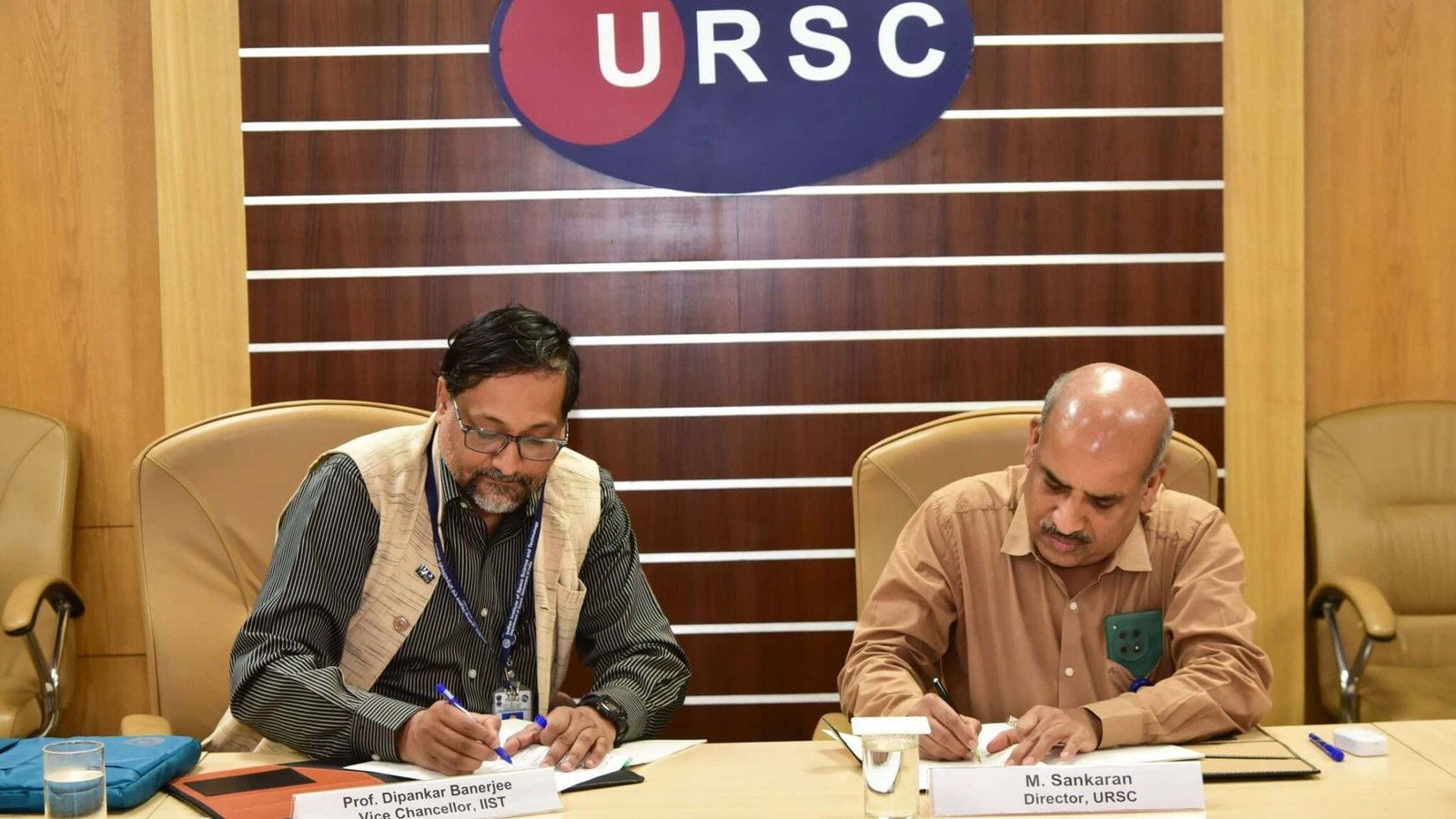Jobs & Careers
10 GitHub Repositories for Python Projects


Image by Author | ChatGPT
After mastering the Python fundamentals, the best way to solidify your knowledge is by building projects. But with Python’s vast ecosystem, it can be overwhelming to know where to start.
That’s where curated GitHub repositories come in, they provide direct links to real-life projects in data science, automation, machine learning, web development, and more. These collections often include tutorials, guides, and source code, so you can follow along, learn by doing, and even run the original code if you get stuck.
GitHub Repositories for Python Projects
1. The Ultimate Project-Based Python Learning Hub
Link: practical-tutorials/project-based-learning
This is the most popular repository on GitHub, with over 234,000 stars. It contains a comprehensive list of project-based tutorials for various programming languages, including Python. Perfect for learners who want to build real projects and learn by doing.
2. Endless Python Project Ideas & Resources
Link: The-Cool-Coders/Project-Ideas-And-Resources
A collection of application ideas and resources to help you improve your coding skills. Great for finding inspiration and challenging yourself with new project concepts.
3. Real Python’s Hands-On Learning Materials
Link: realpython/materials
If you are a fan of the Real Python website, you will love this repository. It contains bonus materials, exercises, and example projects from Real Python tutorials. Ideal for anyone following Real Python’s educational content and looking for practical exercises.
4. Curated Project Tutorials for Every Learner
Link: Xtremilicious/projectlearn-project-based-learning
A curated list of project tutorials focused on project-based learning. It covers a wide range of topics and is ideal for learners who want to build as they learn. If you scroll down, you will find the AI/Machine Learning section, which contains mostly Python-based projects with descriptions.
5. Awesome Jupyter: Notebooks, Libraries & More
Link: markusschanta/awesome-jupyter
If you love working with Jupyter Notebooks, you will find this list of awesome Jupyter projects, libraries, and resources highly valuable. It will help you improve how you use Jupyter Notebooks, explore extensions, and discover other Python packages to enhance your workflow.
6. Python Mini-Projects for Quick Wins
Link: ndleah/python-mini-project
As a beginner, you don’t have to start by building AI applications or complex projects. You can always start with mini-games. This repository contains bite-sized projects that you can build and test in a single day without any hassle.
7. 100 Practical Python Projects Challenge
Link: arpit-omprakash/100ProjectsOfCode
A list of 100 practical, knowledge-building projects. It’s a challenge-style repository, meaning every time you build a project, you mark it as done. It tracks your progress and helps you learn Python across various categories, like AI, games, apps, bots, web, and more.
8. Data Science Projects for Python Enthusiasts
Link: veb-101/Data-Science-Projects
A collection of data science projects in Python. It contains a list of popular and generic projects to help you move on to more complex and advanced topics. It’s a great way to learn the basics faster.
9. Showcase of Awesome Python Projects
Link: garimasingh128/awesome-python-projects
A showcase of awesome Python projects. It comes with guides, links to resources, and tutorials. This is a perfect repository if you are a Python beginner.
10. Python Script Projects from Beginner to Advanced
Link: larymak/Python-project-Scripts
A repository of Python script projects, starting from beginner level and advancing gradually. Great for incremental learning and code snippet discovery. It will also help you automate your workflow and build GUI-based desktop applications and web applications. Great for pet projects.
Conclusion
Python stands out as one of the most popular programming languages in the world, and for good reason. Its simple, readable syntax makes it accessible to beginners, while its power and flexibility attract experienced developers and data scientists alike. By exploring the top GitHub repositories highlighted in this article, you are taking a significant step toward building a strong portfolio and mastering one of the most in-demand skills in tech today.
Abid Ali Awan (@1abidaliawan) is a certified data scientist professional who loves building machine learning models. Currently, he is focusing on content creation and writing technical blogs on machine learning and data science technologies. Abid holds a Master’s degree in technology management and a bachelor’s degree in telecommunication engineering. His vision is to build an AI product using a graph neural network for students struggling with mental illness.
Jobs & Careers
Mira Murati’s Thinking Machines Cracks the Code on LLM Nondeterminism

Large language models (LLMs) often behave unpredictably during inference, producing different outputs even when given the same prompt.
Thinking Machines, an AI company founded by former OpenAI CTO Mira Murati, says it has identified the root cause of this nondeterminism and developed a solution that could make inference reproducible and reliable.
In a blog post titled “Defeating Nondeterminism in LLM Inference”, the company explained that the problem goes beyond the well-known issue of floating-point arithmetic and GPU concurrency.
While rounding errors from parallel computations do play a role, Thinking Machines argues that the real culprit is the lack of batch invariance in widely used inference kernels.
Batch invariance means that a model’s output for a given prompt should remain identical regardless of the batch size or how requests are grouped together. In current systems, many operations—such as matrix multiplications, attention mechanisms, and normalisation—change their internal computation strategies depending on batch size.
This variation in reduction order introduces tiny numerical differences, which can cascade into divergent outputs over long generations.
To address this, the team built batch-invariant kernels for key operations, including RMSNorm, matmul, and attention. Testing on the Qwen-3-8B model, they found that under default settings, 1,000 runs of the same prompt at temperature 0 produced 80 unique completions. With the modified kernels, all 1,000 completions were identical, demonstrating full reproducibility.
The trade-off, however, is speed. The batch-invariant setup ran slower than default inference, though optimisations to the attention kernel helped reduce the gap. Still, Thinking Machines argues that the performance cost is a fair price for the gains in determinism, especially for use cases in research, safety, and debugging.
“Reproducibility is a bedrock of scientific progress. However, it’s remarkably difficult to get reproducible results out of large language models.” the blog noted, adding that eliminating nondeterminism could also reduce discrepancies between training and inference phases of LLM deployment.
By reframing nondeterminism as a batch invariance problem, the company hopes to influence the design of future inference engines, where determinism may become as critical as raw speed.
The post Mira Murati’s Thinking Machines Cracks the Code on LLM Nondeterminism appeared first on Analytics India Magazine.
Jobs & Careers
TCS Launches Chiplet-Based Engineering Services to Boost Semiconductor Innovation

Tata Consultancy Services (TCS) has launched its chiplet-based system engineering services to help semiconductor companies design next-generation chips. TCS aims to enable faster, more efficient and powerful processors at a time when demand for advanced semiconductors is rising.
The company said that the new services are designed to support chipmakers as the industry shifts from traditional chip design to chiplet-based systems.
“TCS Chiplet-based System Engineering services will help semiconductor enterprises accelerate chiplets tapeout, driving flexibility, scalability and faster time to market,” said V Rajanna, president for technology, software and services at TCS.
Why Chiplet-Based Design Matters
The semiconductor industry faces bottlenecks in scaling and making chiplet-based design a preferred approach. Smaller chips can be mixed and matched to meet varied needs, enabling faster product launches and cost reduction.
With demand driven by AI, cloud computing, smartphones, electric vehicles and connected devices, this shift comes at a critical time.
India’s semiconductor market, valued at $45–50 billion in 2024–2025, is projected to grow to $100–110 billion by 2030. Backed by the India Semiconductor Mission, the country is aiming to become a global hub for chip design and manufacturing.
TCS’s new services are expected to strengthen this momentum by giving companies access to chip-to-system engineering expertise.
TCS in the Semiconductor Industry
TCS has over 20 years of experience in the semiconductor sector and offers a portfolio of chip-to-system engineering services. Its offerings include design and verification of UCIe and HBM standards, as well as advanced package design such as 2.5D and 3D interposers. The company has also worked with a North American semiconductor firm to integrate chiplets into AI processors, reducing delivery timelines.
In February this year, the Indian IT giant also announced a collaboration with Salesforce to enhance the use of AI in the manufacturing and semiconductor sectors. As part of this partnership, TCS launched three key initiatives to improve sales and service efficiency. The Semiconductor Sales Accelerator was expected to help businesses increase sales by providing data-driven insights.
The post TCS Launches Chiplet-Based Engineering Services to Boost Semiconductor Innovation appeared first on Analytics India Magazine.
Jobs & Careers
IIST, URSC Sign MoU to Develop Venus Mission Payload

The Indian Institute of Space Science and Technology (IIST) has signed a memorandum of understanding (MoU) with the UR Rao Satellite Centre (URSC) for the development of the Retarding Potential Analyzer for Venus (RPA-V) payload.
The project aims to study the ionosphere of Venus. According to IIST’s LinkedIn post, the project is expected to provide key insights into the dynamics of the Venusian ionosphere and its interaction with solar wind.
The RPA-V payload will be developed under the leadership of professor Umesh R Kadhane, with support from faculty members Anoop CS, Immanuel Raja, Sooraj VS, R Sudharshan Kaarthik, Pradeep Kumar P and Rajeevan PP.
Building on Past Missions
IIST has been given this responsibility due to its earlier success with ARIS-1 and ARIS-2 missions. These projects demonstrated the institute’s capability in building space-qualified hardware. The new payload continues this track record and will expand India’s planetary exploration programme.
“The RPA-V payload is set to deepen our understanding of Venus’s atmosphere,” IIST stated in the post.
The project also holds academic value, with IIST students set to contribute to its development. Their participation will provide hands-on training in space plasma research. IIST noted that this experience would help prepare a talented workforce for India’s upcoming indigenous space programmes.
“This collaboration will strengthen IIST’s position as a world-class research hub for developing ionospheric measurement devices, while simultaneously shaping the skilled workforce needed for India’s future space science endeavours,” the institute added.
The post IIST, URSC Sign MoU to Develop Venus Mission Payload appeared first on Analytics India Magazine.
-

 Business2 weeks ago
Business2 weeks agoThe Guardian view on Trump and the Fed: independence is no substitute for accountability | Editorial
-
Tools & Platforms1 month ago
Building Trust in Military AI Starts with Opening the Black Box – War on the Rocks
-

 Ethics & Policy2 months ago
Ethics & Policy2 months agoSDAIA Supports Saudi Arabia’s Leadership in Shaping Global AI Ethics, Policy, and Research – وكالة الأنباء السعودية
-

 Events & Conferences4 months ago
Events & Conferences4 months agoJourney to 1000 models: Scaling Instagram’s recommendation system
-

 Jobs & Careers2 months ago
Jobs & Careers2 months agoMumbai-based Perplexity Alternative Has 60k+ Users Without Funding
-

 Podcasts & Talks2 months ago
Podcasts & Talks2 months agoHappy 4th of July! 🎆 Made with Veo 3 in Gemini
-

 Education2 months ago
Education2 months agoMacron says UK and France have duty to tackle illegal migration ‘with humanity, solidarity and firmness’ – UK politics live | Politics
-

 Education2 months ago
Education2 months agoVEX Robotics launches AI-powered classroom robotics system
-

 Funding & Business2 months ago
Funding & Business2 months agoKayak and Expedia race to build AI travel agents that turn social posts into itineraries
-

 Podcasts & Talks2 months ago
Podcasts & Talks2 months agoOpenAI 🤝 @teamganassi

